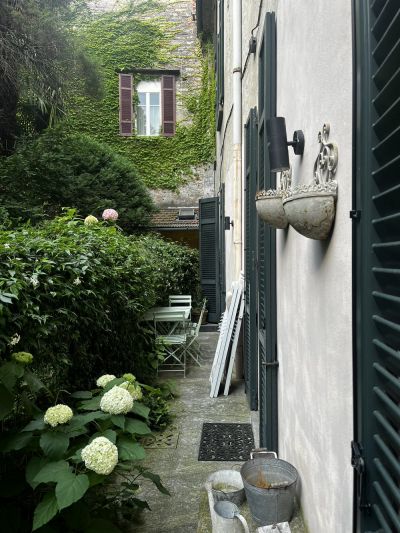L'autore dell'articolo, il Dott. Patrick Tunno, racconta di una visita a Milano in cui una citazione di Italo Calvino ha cambiato il suo punto di vista sulla cultura e la vita italiana. La citazione recita: "D'una città non godi le sette o le settantasette meraviglie, ma la risposta che dà a una tua domanda". Tunno racconta un ricordo specifico in cui lui e suo figlio hanno incontrato due vicini di casa e hanno sviluppato un legame speciale. La coppia gli ha detto che loro sono stati i primi turisti ad accoglierli e che erano interessati a diventare amici. Tunno afferma che è stata la citazione di Calvino a ispirare questa amicizia.
While strolling through Milan on a recent trip to Italy, I noticed a quote by Italo Calvino displayed throughout the city. It read, “D'una città non godi le sette o le settantasette meraviglie, ma la risposta che dà a una tua domanda.” This translates to “You do not enjoy a city for its seven or 77 wonders, but for the answer it gives to your question.”
The quote, from Calvino’s “Invisible Cities,” lingered in my mind as I continued my travels. Often, we journey to Italy, or anywhere, focused on what we will see, such as Milan’s Duomo, its imposing Castello Sforzesco, or the glimmering fashion streets of the Quadrilatero d’Oro. But what if we reimagined travel not as a checklist of sights, but as an opportunity to discover who we will meet, and what they might teach us?
During this trip, I had an experience that crystallized this idea. My young son, Alessandro, was in the bathroom of our ground-floor apartment in Como when I heard a startled scream. He shouted that a woman was knocking on the bathroom window, peering in.
The apartment was tucked into a courtyard, surrounded by a wild, lush garden. Our portion was fenced off behind a large hedge, so we had limited access — just enough space to feel the sweltering afternoon heat or drop off our recycling. We had previously encountered a woman named Giovanna, who, with her flowing silver hair, appeared to be in her 60s. I had assumed she was the gardener. One afternoon, as my curious nine-year-old peered over the fence separating our tiny corner of the garden from the rest, we asked Giovanna about a nearby fruit tree. The fruit, she explained, was nespolo, or loquat, slightly tart, slightly sweet, and the size of a small apple.
Now I was puzzled by Alessandro’s panicked reaction, so I went to investigate. When I stepped outside, I found Giovanna with her husband, Massimo, in the garden, holding a basket of freshly picked nespoli. To my surprise, they invited us to enter the garden through their home — the only way in.
What awaited us was a portal to another world. We were in the heart of historic Como, surrounded by espresso bars and bustling shops, yet we passed through a serene rustic Tuscan-style vestibule with an ancient stained-glass door, wooden beams, and weathered walls. Massive oil paintings adorned the interior – works by Massimo’s sister, a painter.
Stepping into the garden felt like entering Eden itself. My son, in his pajamas, skipped around joyfully sampling fruit, proudly proclaiming in his best Italian: “Questa frutta è molto buona!” (“This fruit is very good!”) and “Voglio andare dentro un’altra volta!” (“I want to come back again!”)
As we chatted, I learned that Massimo shared our Abruzzese roots. His hometown was not far from the one my grandfather left behind decades ago. Massimo and Giovanna also shared something else surprising. In all the years that apartment had been rented to visitors, they had never invited anyone into their garden before. But we had made an effort to connect — not as tourists, but as people. And that, I believe, is something Italians are uniquely wired to respond to.
This scene repeated itself throughout our trip. At the gelateria, we became friendly with the staff. At the playground, Alessandro joined a group of children playing Lupo Mangia Frutta, an Italian version of duck-duck-goose. Each interaction offered not just warmth, but wisdom, humor, history, and a sense of shared humanity.
Yes, we saw medieval towers, breathtaking landscapes, and stunning architecture. But none of those compared to the joy of human connection, the taste of a new fruit, or the unexpected generosity of strangers who soon became friends. Italians have a magnetic pull toward connection, and in my experience, that pull is the true marvel of Italy.
Calvino was right: Italy’s wonders aren’t just in its monuments, but in its people — and in the way they answer your unspoken questions with open hearts.



